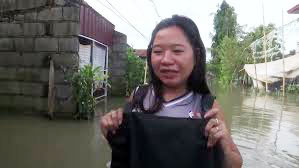Marcos Balances Big Spending with Tough Accountability Measures
President Marcos used his fourth State of the Nation Address to deliver a clear message: the Philippines is ready for business, but government projects must deliver real results.
The Monday address combined massive spending commitments—₱113 billion for agriculture, ₱60 billion for education—with unprecedented accountability measures that could reshape how government contracts work.
For businesses, the takeaway is simple: opportunities are growing, but performance standards are rising.
The investment pitch: the Philippines is ready
Marcos delivered his strongest message yet to foreign investors: “The Philippines is ready. Invest in the Filipino.”
The confidence comes from real progress: 2.5 million homes newly connected to electricity, 22,000 new classrooms built, and the Philippines ranking second in ASEAN for youth entering college and technical education.

Agriculture gets ₱113 B boost
The biggest sectoral bet involves ₱113 billion for agriculture programs, centered on rolling out ₱20 rice nationwide through hundreds of KADIWA stores.
Coconut industry transformation leads the charge: 15 million hybrid seedlings this year, scaling to 100 million trees across the country. The government wants Congress to revamp the Coconut Farmers Trust Fund.
Business opportunities include agricultural technology, processing facilities, farm-to-market roads, and supply chain development as food security becomes a priority.
Energy: problems acknowledged, solutions targeted
Marcos gave an unusually honest energy assessment: despite progress, three big problems remain—3 million homes without power, frequent brownouts, and high electricity costs.
The Siquijor blackout crisis showed what’s wrong: expired permits, broken generators, slow responses, and poor maintenance led to a provincial emergency.
What’s coming: 200 new power plants over three years (enough for 4 million homes or 2,000 factories), plus 1 million homes getting solar systems by 2028. Net metering approvals will be fast-tracked.
Priority areas: Quezon, Camarines Norte, Palawan, Masbate, Samar, Negros Occidental, Zamboanga del Sur.
Education: ₱60B investment
Nearly ₱60 billion goes to free public college and technical education next year, supporting 2+ million students annually.
Infrastructure needs: 40,000 new classrooms before the term ends, requiring private partnerships. Another ₱1 billion will build 300+ child development centers in remote areas.
Tech upgrade: All 12,000+ public schools without internet will be connected by year-end. Teachers get laptops, smart TVs, and digital learning materials.
Healthcare revolution: zero balance billing
The biggest healthcare change: patients pay nothing at DOH hospitals for basic care through combined PhilHealth, government funds, and hospital budgets.
PhilHealth expansion now covers heart surgery, cancer treatment (₱1.7 billion fund), free dialysis, kidney transplants up to ₱2.1 million, and emergency services.
Every municipality now has a doctor, while 53 medical centers provide free services across 32 provinces.
Infrastructure: quality over speed
Infrastructure strategy shifts to “Build Better More”—emphasizing quality and maintenance over quick completion.
Major projects: 32-kilometer Bataan-Cavite bridge starts this year (cutting travel from 5 hours to 45 minutes), SLEX extension opens 2026 (4 hours becomes 1 hour), and 428-kilometer Mindanao connectivity project linking major cities.
Quality focus: The President contrasted failed projects (₱1 billion bridge that collapsed in days) with successful ones (San Juanico bridge still standing after 50 years).
Digital government: eGov expansion
Government services go digital through the eGov app: 40+ services now available including license renewals, PhilHealth, immigration, and job applications. NBI clearance and tax IDs coming soon.
Internet infrastructure grew from 4,000 to 19,000 free Wi-Fi sites nationwide, while 1+ million SIM cards with free data serve schools.
The Accountability Shock
Marcos delivered his most dramatic moment addressing corruption in flood control projects: “Let’s not pretend. Everyone knows there are rackets in projects.”
Three-step accountability: Government will list all flood control projects from the last three years, review their performance, then publish results for public scrutiny.
Criminal charges promised for officials and contractors involved in failed projects—creating real risks for construction companies with poor track records.
Budget threat: deal or no deal
In an unprecedented move, Marcos threatened to veto the 2026 budget if it doesn’t follow government priorities, saying he’d rather have a reenacted budget than bad spending.
This could delay projects and payments if Congress doesn’t align with administration plans.
The business bottom line
Opportunities: Agricultural technology, renewable energy (especially solar), healthcare equipment, educational technology, digital services, and quality construction companies.
Risks: Accountability investigations affecting contractors, potential budget delays, persistent energy costs, and higher performance standards.
Key sectors to watch: Agriculture (₱113B), education (₱60B), healthcare (zero billing expansion), and energy (200 new plants).
Investment climate: Strong government spending continues, but success increasingly depends on quality delivery and transparency rather than just low bids.
The message is clear: the Philippines wants business investment, but business must deliver real value. Companies that focus on quality, transparency, and actual results will thrive. Those that don’t may face new accountability measures that could hurt both reputation and bottom line.
For businesses planning their Philippines strategy, SONA 2025 shows a government confident enough to acknowledge problems while investing heavily in solutions—creating opportunities for partners who can help deliver them.
Marcos’ midterm SONA balanced massive spending commitments with tough accountability measures, creating opportunities for quality-focused businesses while raising risks for underperformers.





